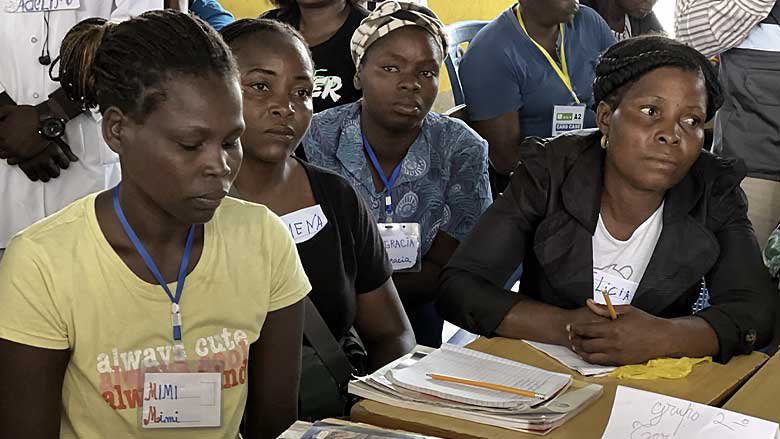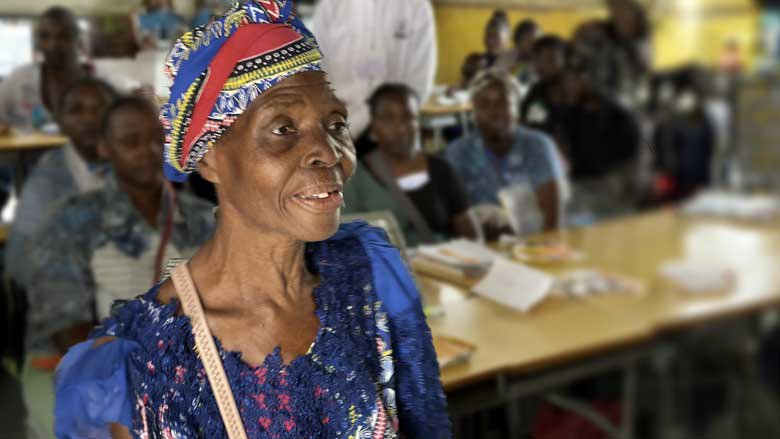Elizabeth Afonso Gonga has a fixed weekday routine. At 7:00 a.m. every morning, she arrives at the KM-30 market, a large hub situated on the outskirts of Luanda. Once there, she cleans up her stall and arranges the goods—including beans, rice, and peanuts—that she will sell during the day to earn a living and provide for her family. After that, between 7:30 and 9:30 a.m., she attends adult education classes in one of the two rooms built by the market’s administration to host literacy lessons for the vendors. During her absence, her colleague Joana Domingos takes care of her stall and handles the sales on her behalf. When Elizabeth returns, it’s her turn to look after Joana’s stall while her friend attends a similar class from 9:45 a.m. to 11:15 a.m.
The KM-30 market is the biggest hub for agricultural products in Angola. Spread over 1.9 million sqm, it boasts seven pavilions and about 3,500 registered traders. Every day, it receives truckloads of food items such as vegetables, fruit, tubers, cattle, goats, pigs, and poultry, most of which come from the countryside.
A large majority of the traders at the KM-30 market are women who sadly never had the chance to receive an education and to acquire basic reading and writing skills. In 2018, the National Statistics Institute of Angola published data indicating that the country’s illiteracy rate stood at 24%. However, a closer, gender-based analysis of the data revealed a significant disparity between men and women: while only 12% of men were found to be illiterate, the rate among women was over 42%. This gap is due to a range of factors, which include cultural and gender-based discrimination, lack of access to education, and poverty.
To fight illiteracy among women, the Angola Ministry of Education has expanded the second-chance education program within the framework of the World Bank-supported Girls Empowerment and Learning for All Project. This expansion provides out-of-school girls and boys aged 15 and older with a second chance to complete their education and gain valuable life skills.
This initiative offers a safe and supportive learning environment in which individuals can improve their reading and writing abilities, and learn basic arithmetic, an important set of skills that can help them make informed decisions for their trading businesses and in other areas of their lives.
Over the past few years, many second-chance education classes have been set up in markets, prisons, and churches across Angola. Elizabeth and Joana are two of the women attending classes in the KM-30 open-air market. They are not alone: many other women in the market also attend, recognizing the program as their only chance to gain the skills they need to succeed. Thanks to the project and these second-chance classes, they now have hope for a better future.


